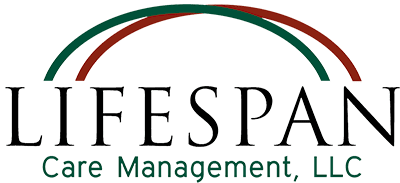Registered Nurses (RNs) and case managers play distinct but complementary roles within the healthcare system.
Registered Nurse’s Role In Patient Care
Registered Nurses (RNs) are crucial in supporting elderly patients throughout the Plan of Care, ensuring their safety, well-being, and optimal health outcomes. RNs thoroughly assess elderly patients, considering their medical history, current health status, cognitive function, mobility, nutritional needs, medication regimen, and psychosocial factors.
- Clinical Focus: RNs primarily provide direct patient care, including administering medications, monitoring vital signs, performing medical procedures, and educating patients and their families about health conditions and treatment plans.
- Patient Advocacy: RNs advocate for patients’ needs and rights, ensuring they receive appropriate care and support throughout their healthcare journey.
- Care Coordination: While RNs may participate in care coordination to some extent, their primary role is providing clinical care at the bedside.
- Licensing and Education: RNs are licensed healthcare professionals who typically hold a Bachelor of Science in Nursing (BSN) or Associate Degree in Nursing (ADN) and have completed state-mandated licensure exams.
Case Manager:
- Coordination and Navigation: Case Managers focus on coordinating and navigating the complex healthcare system to ensure patients receive comprehensive, holistic care across various settings, including hospitals, clinics, and community resources.
- Advocacy and Resource Management: Case Managers advocate for patients by identifying their needs, coordinating services, accessing resources, and addressing barriers to care.
- Collaboration: Case Managers collaborate with interdisciplinary teams, including physicians, nurses, social workers, and other healthcare professionals, to develop and implement individualized care plans tailored to patients’ unique needs and preferences.
- Continuum of Care: Case Managers oversee patients’ care transitions, from hospital admission to discharge and beyond, ensuring continuity of care and facilitating smooth transitions between healthcare settings.
- Certification and Training: Case managers may hold certifications such as Certified Case Manager (CCM) or Accredited Case Manager (ACM) and often have nursing, social work, or healthcare administration backgrounds.
LifeSpan Care Management:
LifeSpan Care Management, as a healthcare advocacy service, can be crucial in coordinating and managing RNs, insurance coverages, and case management to optimize patient care outcomes. Here’s how:
-
- Comprehensive Care Coordination: LifeSpan Care Management professionals collaborate with RNs and case managers to ensure seamless coordination of care across all healthcare settings, addressing the medical, emotional, and social needs of patients.
- Patient Advocacy: LifeSpan advocates for patients’ rights and preferences, working closely with RNs and case managers to empower patients in decision-making processes and ensure their voices are heard throughout their healthcare journey.
- Resource Navigation: LifeSpan assists RNs and case managers in accessing community resources, support services, and financial assistance programs to meet patients’ diverse needs and enhance their overall well-being.
- Communication and Collaboration: LifeSpan facilitates communication and collaboration among healthcare providers, patients, and their families, fostering a multidisciplinary approach to care delivery and promoting transparency and continuity of care.
- Support for Caregivers: LifeSpan provides support and resources to caregivers, including education, respite care, and emotional support, recognizing their vital role in the care of patients.
- LifeSpan nurses act as a “fiduciary”: While many folks who provide care coordination or care management say they are there for the patient/client, their advice is not always in the best interest of the client. LifeSpan’s contract agreement with clients and families specifically states that we act in the client’s best interest. We do not fee-split or take any money from health providers or attorneys for referrals. What clients get from Lifespan is not just care coordination but our best judgment about the most appropriate strategy to optimize our clients’ functioning and quality of life.

